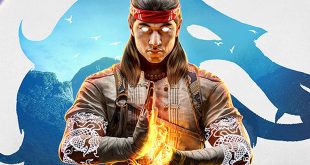Bandai Namco Entertainment Europe’s SVP marketing, digital and content Hervé Hoerdt believes the value of content available via subscription models is “too low” for the company to invest in the idea.

While discussing the rise of new platforms with MCV@gamescom, he said: “Subscriptions are more of a threat, that’s for sure. Because the business model behind subscriptions will be based on two things: the number of hours played on your game compared to the total hours people played, and the number of games played compared to the total number of games.
“So, in the value chain, we see a lot of cascading and the value in the end is too low for us to be able to invest further in the content. So that’s a threat we see. But otherwise, generally speaking, it’s exciting, it’s appealing, it’s more opportunities going forwards.”
Talk of new platforms inevitably progressed to discussion of the Epic Games Store, and the opportunities that Hoerdt recognised it presents the industry, even if he did make it clear that Bandai Namco simply isn’t interested.
“It’s an opportunity to be honest, of course,” he started. “We’ve been swimming in the same pool for years and this pool is made of 200m, 300m people and obviously the vision to be able to address 2bn or more tomorrow is very exciting. I think that’s also why it’s attracting a lot of money at the moment in the industry. People trust the gaming market to grow even bigger. So we see this as an opportunity and a way to address more consumers.
“Having said that, we also see this as a threat, but we need to invest more. While we invest for the current generation, I think it’s no secret that there’s a new generation coming, so we need to put the money in and invest for this new generation. On top of this, for the first time in 30 years, there are streaming platforms like Google [Stadia] emerging, so we need to invest even further.
“We cannot do everything and Japanese [companies] are not risk averse but we’re going slowly. So we have a full platform strategy. The main focus for us is the consumer and the brand. And for each brand we decide what’s the best way to satisfy the consumer and to engage the widest audience possible. So for instance, I don’t see any point of putting Tekken 7 (pictured above) on Epic Store. Epic is just another store. It’s fantastic, they have a lot of strength and [lots of] users, the business model is attractive to us because it’s more profitable but still, their interest is, if I’m correct, exclusivity. And this is not our vision. We want our content to be available for as many fans as possible. I don’t think we’ll deal with Epic in the short term, while we have this strategy. But of course, if they’re open, we’ll go there.”
“We’ve been swimming in the same pool of 200m, 300m people for years and the vision to be able to address 2bn or more tomorrow is very exciting.”
This also comes on the back of Dontnod announcing in June a partnership with Epic Games Store for its next title, Twin Mirror, which will be an Epic exclusive for a year on PC – a PC version that until that point was going to be published by none other than Bandai Namco. The latter will still publish Twin Mirror on consoles, while Dontnod has acquired the rights to the IP.
However, one business model that Bandai Namco does want to embrace is streaming, Hoerdt continued.
“I think there’s a misconception: streaming doesn’t mean subscription. It’s not mandatory. And we’ve put some games there, we’ve made some tests, we have Dragon Ball Xenoverse 2 [coming to Stadia] but we also have more projects in the pipeline. Not on the first wave, but there will be three or four waves in the coming years so we’ll have some titles then and I think this is important for us to make this bet and to see how it reacts.”
Still on the topic of how the gaming landscape will evolve, Hoerdt said Bandai Namco could be looking into different ways of presenting its titles as well, in order to make a foray in emerging markets.
“We’ll also need to be investing in different content. If we think about India or Africa, they have smartphones [rather than] computers or consoles. And they won’t pay €60 to play Tekken on a smartphone. So we need to think about different ways to develop the games, maybe like a free-to-start, I don’t know… A Tekken with five stages and ten characters and then different business models that exist: subscriptions, advertising, in-game currencies to upgrade the game up to the full experience… It’s challenging but interesting.”

 MCV/DEVELOP News, events, research and jobs from the games industry
MCV/DEVELOP News, events, research and jobs from the games industry




